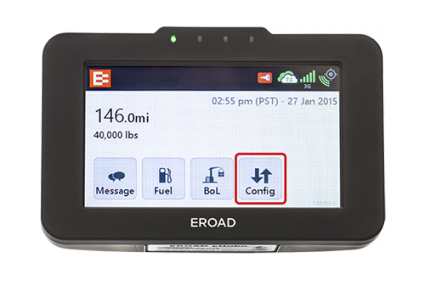ATA Pleased by Release of Electronic Logging Device Rule
posted in Alerts, Blog, Uncategorized by Brian Gray
| FOR IMMEDIATE RELEASE | |
| December 10, 2015 |
ATA Pleased by Release of Electronic Logging Device Rule
Technology Mandate Will Improve Industry’s Safety and Efficiency
 Arlington, Va. – Leaders of the American Trucking Associations hailed today’s release of a rule mandating the use of electronic logging devices by commercial vehicles as a historic step forward for the industry.
Arlington, Va. – Leaders of the American Trucking Associations hailed today’s release of a rule mandating the use of electronic logging devices by commercial vehicles as a historic step forward for the industry.
“Today is truly a historic day for trucking,” said ATA President and CEO Bill Graves. “This regulation will change the trucking industry – for the better – forever. An already safe and efficient industry will get more so with the aid of this proven technology.”
“Today’s important announcement could not have happened without Congressional support, so we thank Congress and congratulate the Federal Motor Carrier Safety Administration for moving forward on this requirement,” said Dave Osiecki, ATA executive vice president and chief of national advocacy. “ATA looks forward to working closely with FMCSA, state law enforcement agencies, as well as our members and industry partners during the two-year transition to full implementation of this safety technology.”
Since 2010, a requirement for electronic logging devices to monitor driver hours-of-service has been a top priority for ATA and that support led to federal legislation calling for today’s rule.
“Safety is ATA’s highest priority,” said ATA Chairman Pat Thomas, senior vice president of state government affairs for UPS. “Today’s announcement of an ELD mandate will make our industry even safer than it is today so we are grateful to FMCSA for advancing this important regulation.”
http://www.trucking.org/article.aspx?uid=f67bf572-5552-446f-b709-34aa51d3cafc
Summary of FMCSA’s Final Rule To Mandate ELDs
Device Adoption Deadline Date:
The rule requires fleets and drivers required to complete paper logs to adopt and use compliant ELDs by December 2017, unless they are currently using automatic on-board recording devices that are grandfathered (see below).
Grandfathering of Existing Equipment:
FMCSA will allow fleets and drivers using “ELD-like” devices meeting the current standards for Automatic On-Board Recording Devices (see 49 CFR 395.15) to continue to use such devices until December 2019, two years after the final deadline for adoption of ELDs. If these devices can be modified to meet the ELD specifications (e.g., with a software upgrade) they may continue to be used after December 2019.
Limited Exceptions:
The final rule allows limited exceptions to the ELD mandate, including:
• Drivers who use paper logs for not more than 8 days during any 30 day period;
• Drivers who conduct driveaway-towaway operations, where the vehicle is the product being delivered;
• Drivers of vehicles manufactured before model year 2000 (due to vehicle connectivity concerns; this is a change from the proposed rule);
• Drivers who operate using the logbook timecard exception (i.e. short-haul 100-air mile drivers)
Short Haul Drivers:
Drivers who are not required to complete logs because they meet one of the short haul exemptions in section 395.1 (e) of the Federal Motor Carrier Safety Regulations are not required to use ELDs. FMCSA recognizes that these drivers occasionally don’t meet the conditions of these exemptions. In those instances, drivers are required to keep a paper log. Drivers who find themselves in these circumstances more than 8 days in any 30-day period are required to use ELDs.
Location Monitoring:
ELDs are required to record vehicle location at every change of duty status and at a minimum of 60-minute intervals. To ensure against harassment and protect driver privacy, the devices will record location during on-duty time at a precision of approximately one mile, and during off-duty time of within ten miles (i.e., will not record exact location but generally where the vehicle is located when used for personal conveyance). Note: Fleets may employ devices that record location more precisely; FMCSA has imposed the one and ten-mile precision limits on information that is reported to enforcement officials when electronic logs are being verified.
Harassment:
The final rule includes several provisions to guard against harassment of drivers. Specifically, the rule prohibits motor carriers from using information from ELDs to pressure drivers into violating regulations. The final rule also requires ELDs to either automatically mute or allow a driver to turn off or mute the volume on the ELD (or the fleet management system with integrated ELD functionality) when they have logged into the sleeper berth status in the ELD. FMCSA also places restrictions on location precision (see above) and establishes a process for drivers to file harassment complaints related to ELDs.
Driver Edits:
Drivers will be able to make edits and annotations to their electronic logs, however the edits will not overwrite or erase the original record, which will be retained. Employers will be able to request edits or annotations, but those must be approved by the driver.







